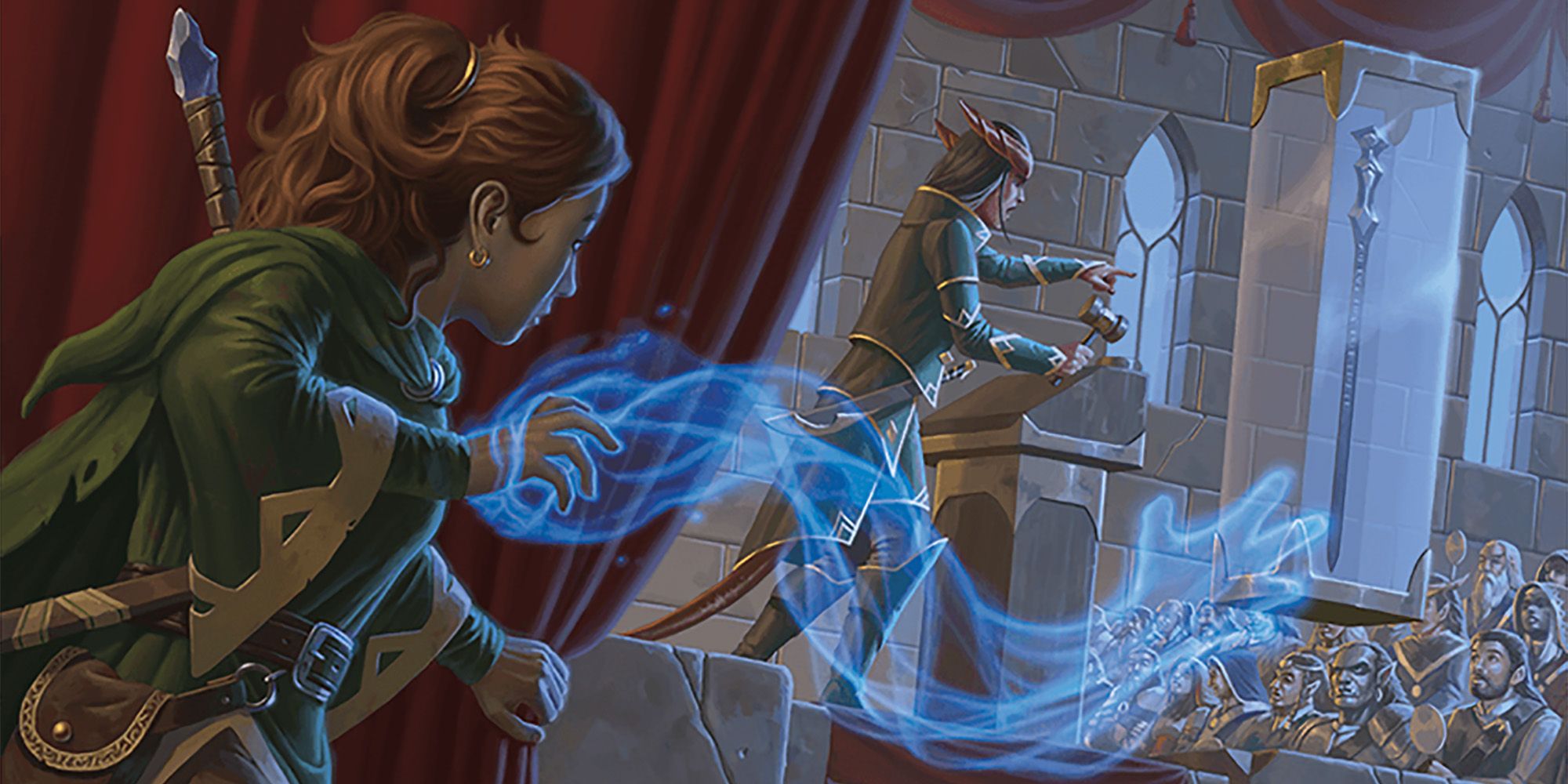
One great thing about Dungeons & Dragons is that the game is constantly growing, with each class becoming more versatile thanks to new subclasses. Playing a simple stab-and-grab Rogue is definitely feasible and fun, but players also have the option of creating magical Rogues who can grab treasures from a distance using their invisible Mage Hand.
The Arcane Trickster subclass is a great way to combine stealth and magic, infiltrating hard to access places where the best loot is usually kept. There are a number of ways to build an Arcane Trickster, and they all have potential. However, there are certain things players need to consider to make the most of this Rogue's capabilities.
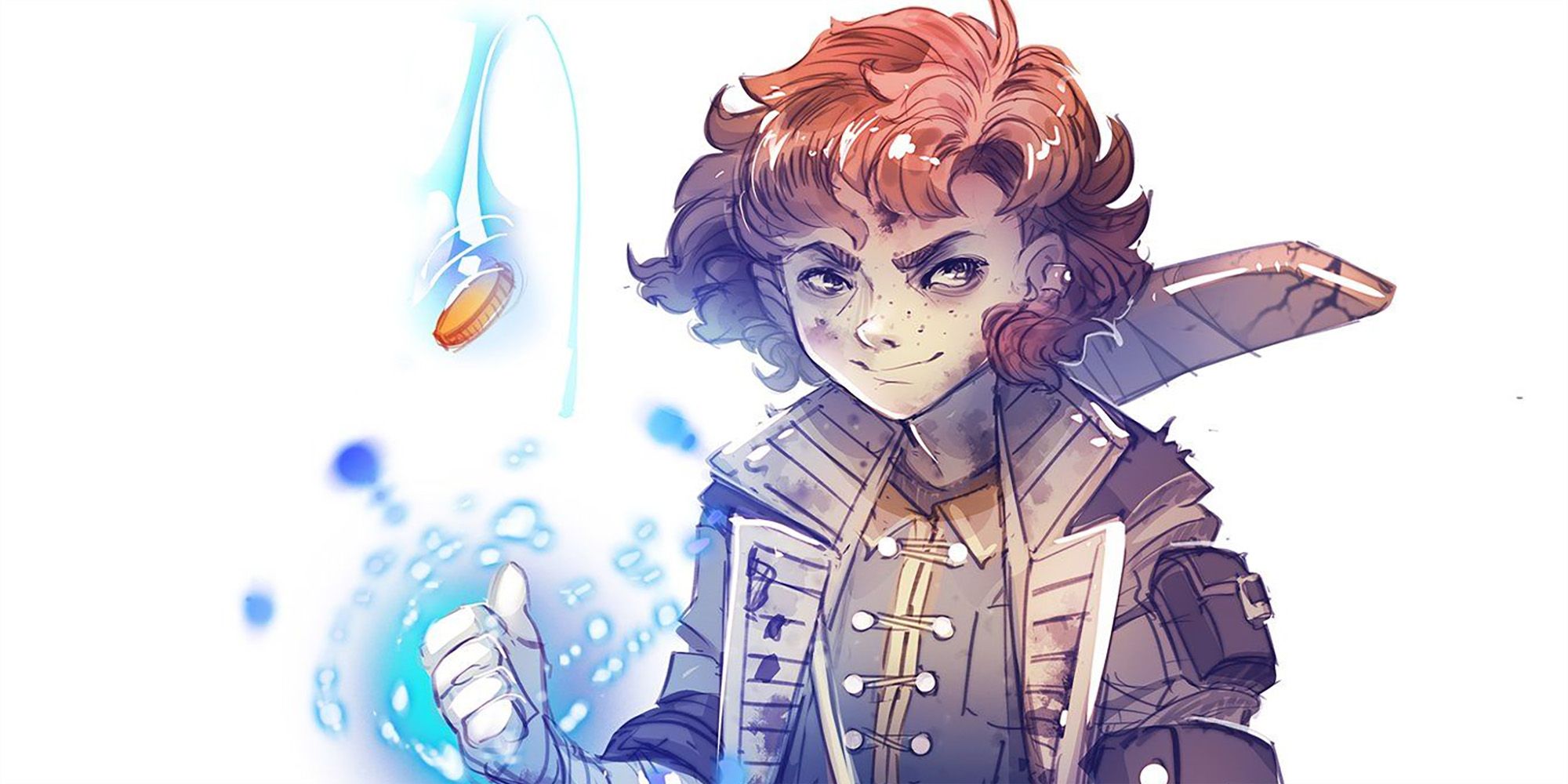
The core attribute for all Rogues is Dexterity, as this is what makes them nimble and stealthy enough to slip into otherwise inaccessible places without setting off alarms and traps. A high dexterity stat also allows them to pick locks and pockets without getting caught. Nearly everything Rogues do is dependent on their dex, but Arcane Tricksters are a little bit different.
Because Arcane Tricksters are also magic-users, they need to focus on building their Intelligence as well. This is the stat their spellcasting modifier and Spell DC are contingent on, so boosting those two attributes as soon as possible is essential. While not as important as dexterity or intelligence, wisdom is also useful when it comes to checking for traps, so make sure it doesn't become a dump stat.
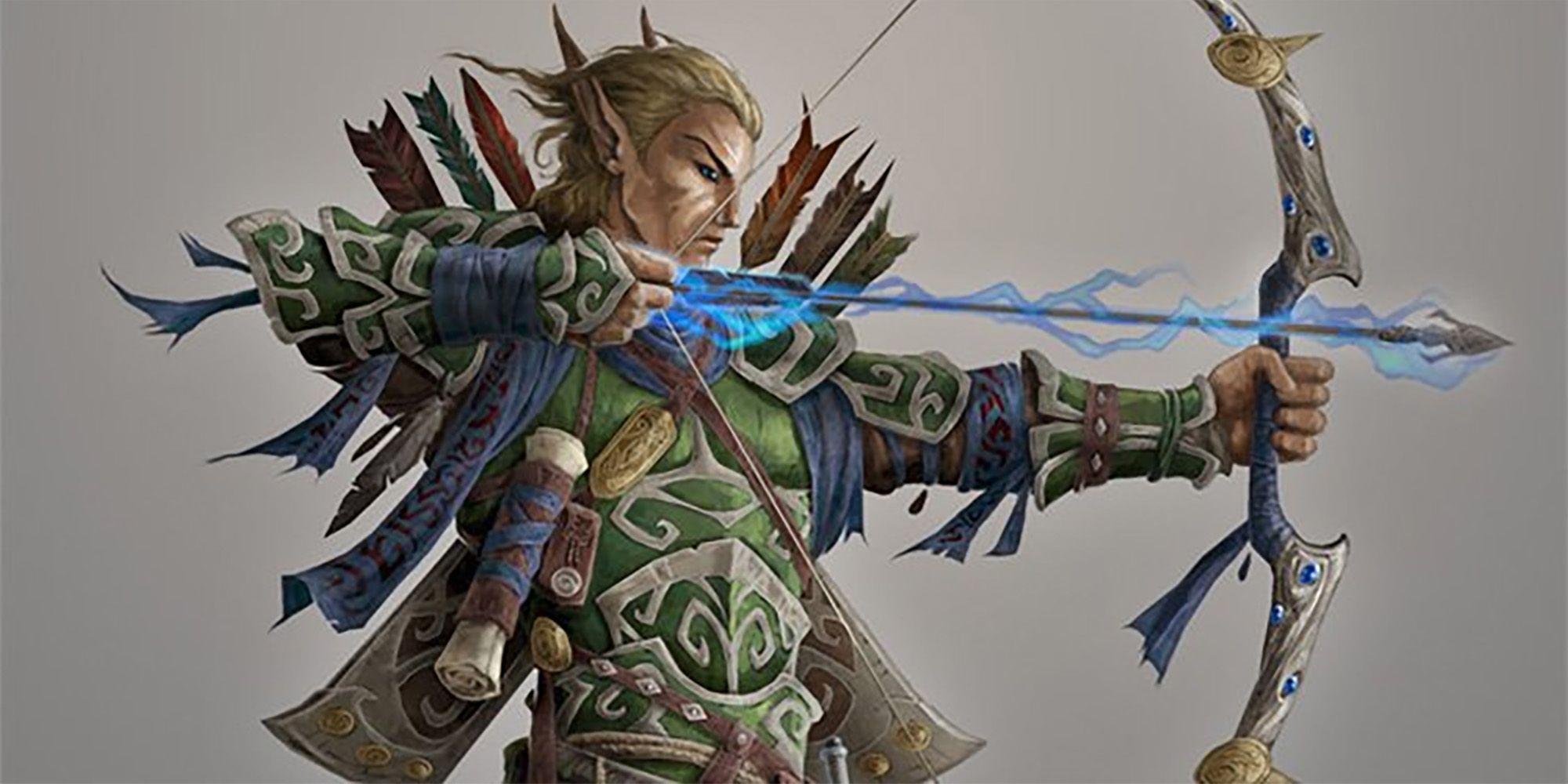
There are a lot of good options for an Arcane Trickster's race, but Elves tend to be outstanding. Not only do they get a +2 to dex, but they are also proficient in perception, which makes it easier to check for traps. High and Wood Elves are both proficient with longbows, which is a great weapon for Rogues in general. Additionally, High Elves have access to an extra Cantrip, which definitely comes in handy considering the Arcane Trickster's spell limitations. Other useful races include Deep Gnomes, Lightfoot Halflings and Humans.
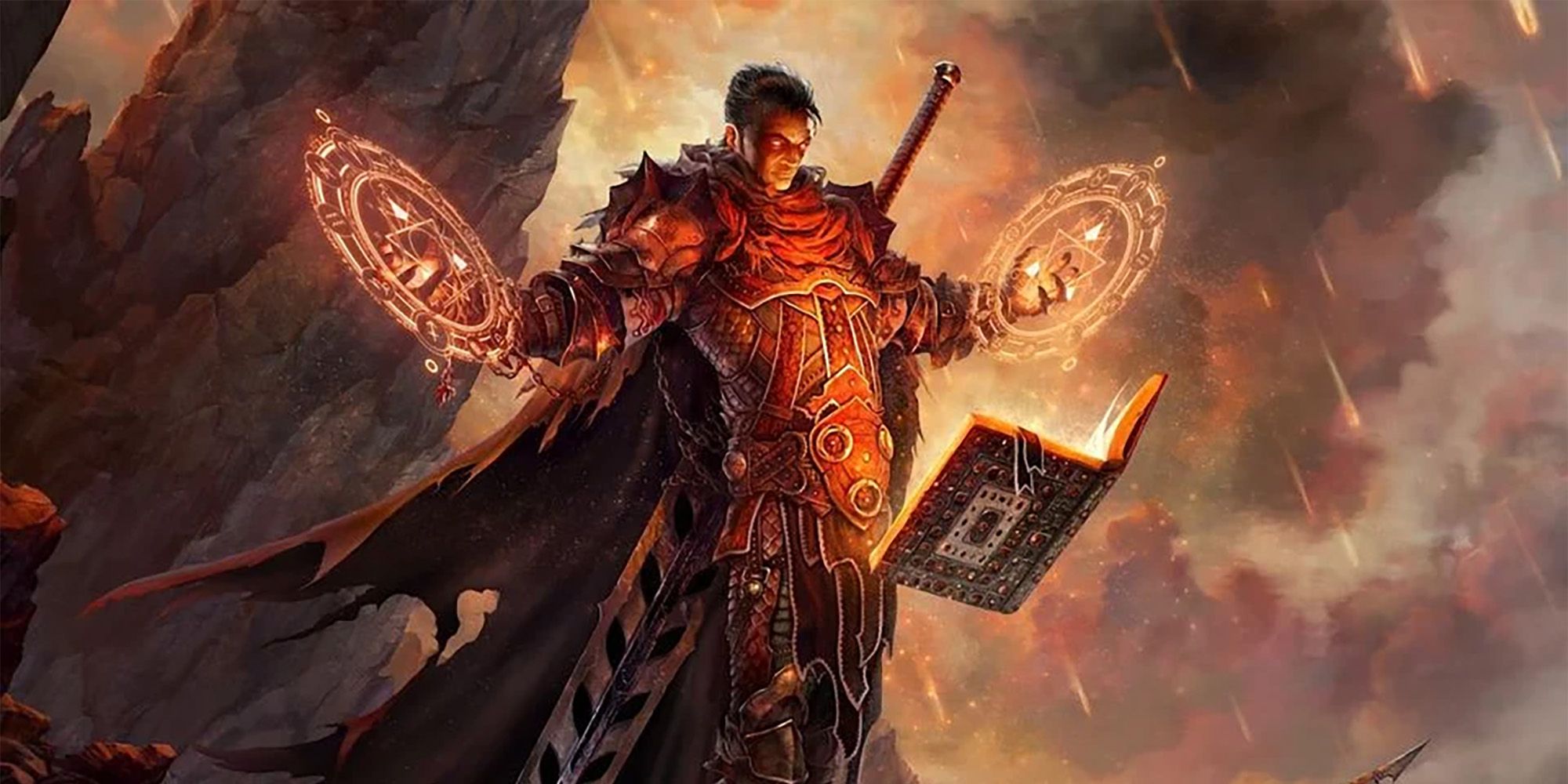
Beyond maxing out the proper stats, all classes get the opportunity to choose a feat instead at certain levels. Arcane Tricksters have access to a number of feats that grant them advantages in spellcasting that come in handy during complicated battles.
The War Caster feat is useful because it allows the Arcane Trickster to basically dual-wield spells the way regular Rogues can dual-wield weapons. Spellcasting opportunities tend to be limited in combat, so this is a helpful feat. It also gives them advantage on concentration checks to ensure those powerful spells they're throwing around don't get knocked out of play when they take damage.
Lucky is also an all around useful feat for Rogues in general, as it allows the player to spend a Luck point to roll another d20 on an attack roll, saving throw or ability check, then choose which one they want to use. That also means that, if a player has disadvantage on a roll, they can roll a third die and use that if it's higher than the lower roll. Finally, since Arcane Tricksters have limited spell capacity, Magic Initiate is helpful, as it allows them to choose a spell class and one first level spell from that category.
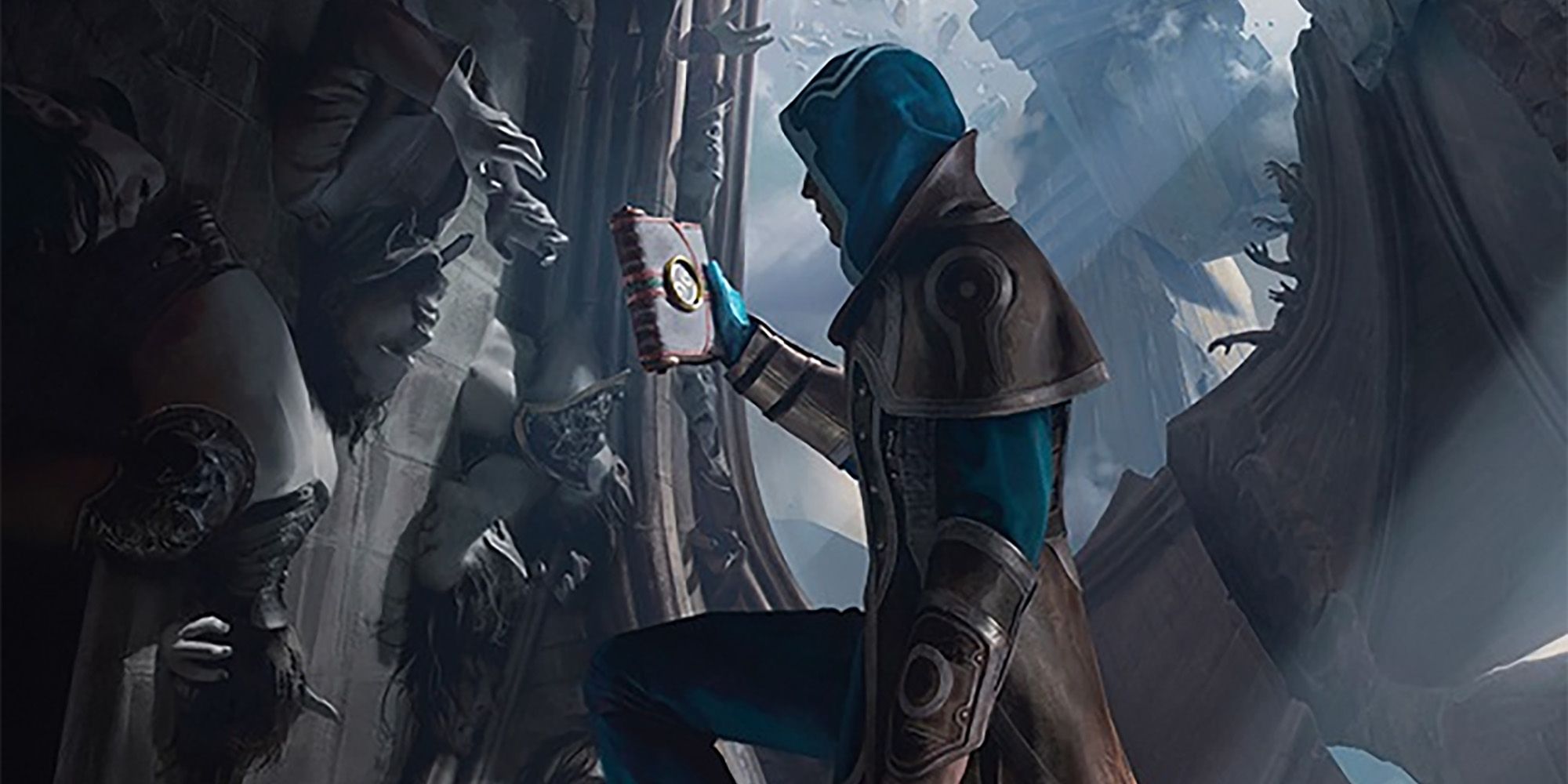
In comparison to other spellcasters, Arcane Tricksters gain access to spells slowly. Over time, their maximum spell slot level only reaches four -- but they aren't supposed to rely on spellcasting alone. Their magical abilities are meant to combine with their other skillsets, making them a versatile asset to the entire party.
When choosing spells, it's important to consider what the Rogue's role is in the party. Illusion magic useful for many Arcane Tricksters. After all, many spent their pre-adventuring lives finding the sneakiest ways to carry out the important tasks. Perhaps they're hoping to cause illusory distractions to trick enemies so the party can make a quick getaway, or maybe they need to disguise themselves to avoid drawing unnecessary attention or recognition.
Another thing to consider is how an Arcane Trickster can utilize their dangerous spell attacks with the sneak attack bonus. Sneak attack doesn't work with Cantrips, but leveled spells like Shadow Blade can really layer on extra damage when combined with sneak attack. Other useful spell choices include Greater Invisibility and the Fly spell, which can help these Rogues quickly get where they need to be, whether that's in battle or while exploring dungeons.
While building an Arcane Trickster, it's important to think about what the character needs to be capable of and build them accordingly. Consider how they fit into their party and what skills others will rely on them for -- like retrieving those hard-to-reach items that promise to yield great rewards.
0 Comments